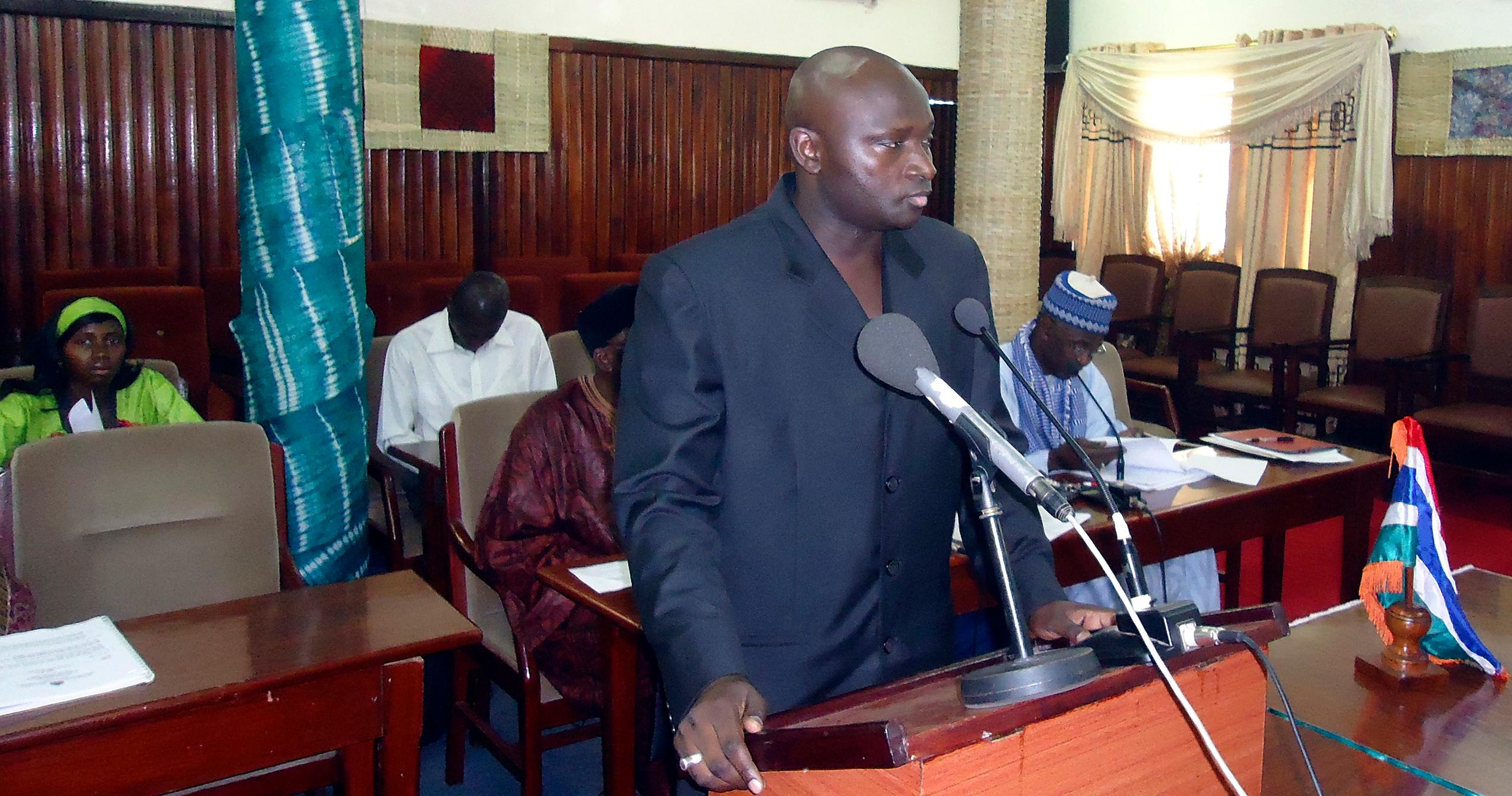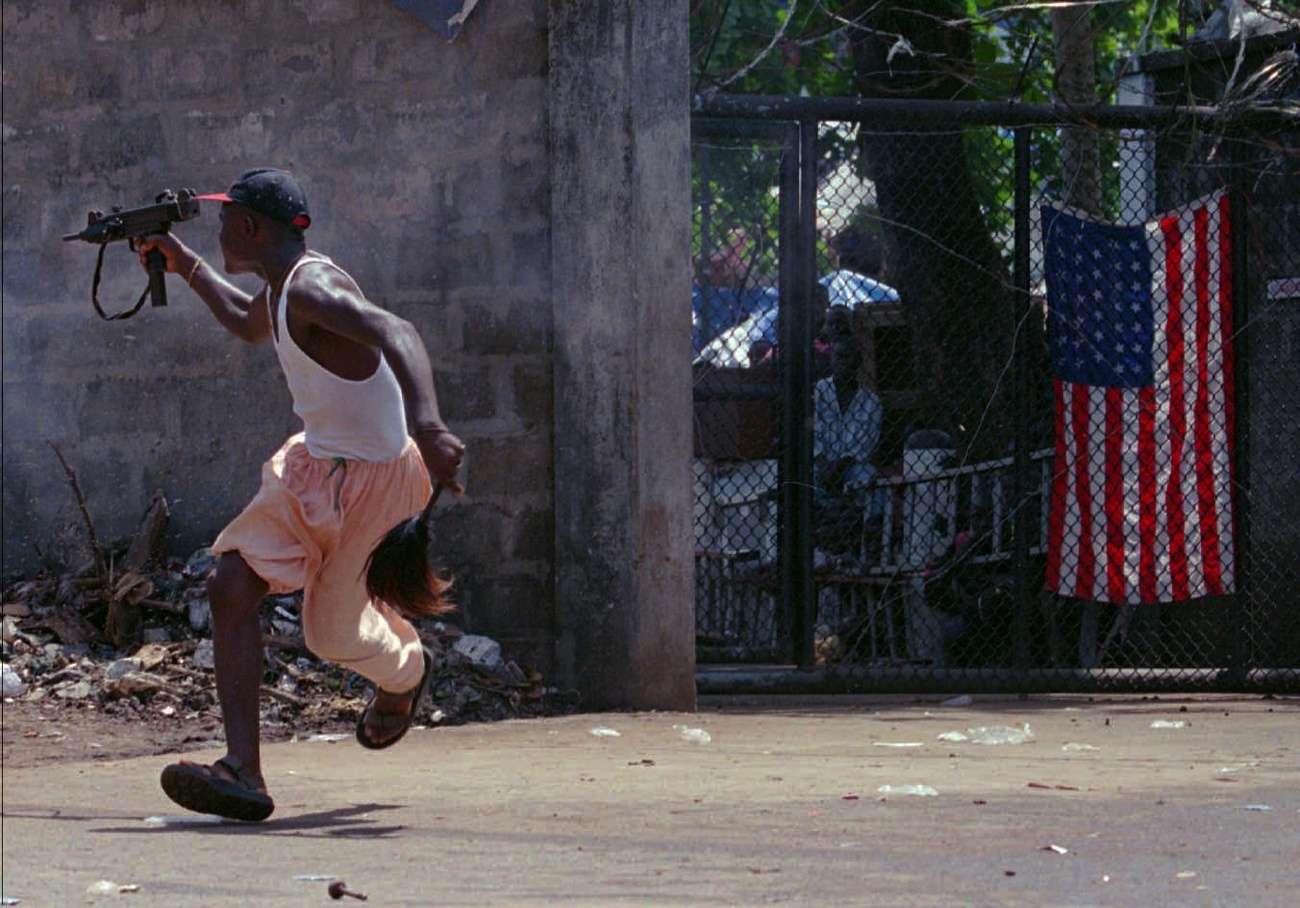
Why Gambian ex-minister is on trial in Switzerland for crimes against humanity

Why is the Swiss trial of Gambia's former interior minister, Ousman Sonko, accused of crimes against humanity a “landmark” international case? Who was Sonko and what was he doing in Switzerland? Here’s what you need to know.
Who is Ousman Sonko?
Ousman Sonko, a former Gambian minister under ousted dictator Yahya Jammeh, went on trial in Switzerland on January 8 for crimes against humanity in a long-awaited case.
Sonko, 55, joined the Gambian military in 1988 and became commander of the State Guard in 2003, a position in which he was responsible for the security of Jammeh, Swiss prosecutors say. He later became inspector general of the Gambian police in 2005 and interior minister (2006-2016).
He was removed as interior minister in September 2016, a few months before the end of Jammeh’s government, and left The Gambia for Europe to seek asylum.
What are the accusations against Sonko?
The Office of the Attorney General of Switzerland has accusedExternal link Sonko of supporting and participating in the “repressive policies” of Jammeh, whose 22-year rule was described by the office as being “characterised by the systematic use of torture, rape, extra-judicial executions, arbitrary detention and forced disappearances”.
Swiss prosecutors say Sonko’s criminal liability results from his direct involvement in the alleged offences and his role as interior minister in charge of the police and prison service.
It accuses Sonko of having “participated, ordered, facilitated and/or failed to prevent killings, acts of torture, acts of rape and numerous unlawful detentions” between 2000 and 2016.

More
Gambian ex-minister faces crimes against humanity charges in landmark Swiss trial
In all, eleven victims – or their survivors – have joined the civil legal case in Switzerland. The Swiss court will have to decide whether the alleged acts were committed as part of a widespread and systematic attack against the civilian population and should therefore be classified as crimes against humanity. Sonko could face a life sentence.
He has denied the charges. His lawyer has asked the court to abandon the case, citing problems with the investigations and hearings. His defence will reportedly argue that many of the alleged crimes against humanity, including the rape charges, happened before a relevant Swiss law took effect in 2011 and are not admissible.
Why is Sonko in Switzerland?
In 2016, Sonko reportedly fled to Sweden, where his asylum application was rejected. Because he still had a visa for Switzerland due to his professional activity, he travelled to the Alpine country and applied for asylum.
In January 2017, Swiss public television SRF reportedExternal link that the Gambian was staying in an asylum centre in canton Bern.
The Geneva-based non-governmental organisation Trial International filed a legal complaint, and the Gambian was arrested. He has been in custody for almost seven years.
Why is Sonko being tried in Switzerland?
The case has no connection to Switzerland apart from the fact that Sonko was arrested here. Switzerland is trying the case under the principle of universal jurisdiction, which allows countries to prosecute people on their territory, even though the events may have taken place elsewhere.

More
The Swiss NGOs that use universal jurisdiction to bring war criminals to justice
The Gambia has not made an extradition request for him. Swiss investigators made six trips to the West African country and conducted 40 interviews with alleged victims and witnesses.
Why is this described as a ‘landmark’ case?
The former interior minister is the “highest-level former official to be tried under the principle of universal jurisdiction in Europe”, Philip Grant, executive director at Trial International, told the AFP news agency. The NGO, which specialises in using the legal system and the principle of universal jurisdiction to prosecute torturers who live in or travel through Switzerland or other countries, has described it as a “landmark” case.
The Gambia has launched its own transitional justice process to address abuses committed under Jammeh’s rule, but rights groups say its work has been slow.
Sirra Ndow, coordinator of the Jammeh2Justice campaign, hailed the Swiss trial as a key step in the wider efforts to address Jammeh’s legacy. “The Sonko case should reinforce efforts back in The Gambia to try crimes under Jammeh’s rule so that perpetrators are held to account for the atrocities committed,” she said in a statement.External link
Other countries are also bringing cases against former members of Jammeh’s regime. In November, a German court convicted a Gambian man, Bai Lowe, of murder and crimes against humanity for involvement in the killing of government critics in Gambia.
This is the second time that Switzerland has tried someone under universal jurisdiction for crimes against humanity. In June 2023, Switzerland announced the conviction of the Liberian Alieu Kosiah, former commander of the rebel militia ULIMO (United Liberation Movement of Liberia for Democracy), who was living in Switzerland. He was found guilty of having killed and executed civilians during the armed conflict in Liberia from 1993 to 1995.
Grant says the last twenty years have been a “struggle” to bring international cases to justice in Switzerland. But he believes the situation is improving after Stephan Blättler was appointed Switzerland’s new attorney general in 2021; the Swiss official has vowed to make international crimes a priority.
The Sonko trial at the Federal Criminal Court in Bellinzona in southern Switzerland will run until January 30, with a verdict due in March.
Edited by Virginie Magnin

In compliance with the JTI standards
More: SWI swissinfo.ch certified by the Journalism Trust Initiative





























You can find an overview of ongoing debates with our journalists here . Please join us!
If you want to start a conversation about a topic raised in this article or want to report factual errors, email us at english@swissinfo.ch.